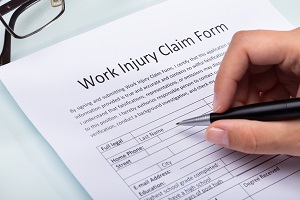Disability benefits are one of the many benefits available under workers compensation for employees who are injured on the job. This benefit is designed to cover employees to obtain a temporary or permanent disability due to a work-related injury or accident.
Does Workers Compensation Cover Pre-Existing Disabilities?
Overall, workers compensation generally does not cover pre-existing conditions. This insurance is different than the health insurance offered by an employer. Workers compensation is geared to cover incidents that happen while an employee is working. Injuries that occur off the clock or offsite will not be covered.
There are some exceptions. If a work-related injury exacerbates a pre-existing condition or disability, the employee may be able to file for workers compensation. For example, if an employee has carpal tunnel and the repetitive motion of their job makes it worse, leading to a need for surgery, they may be covered under workers compensation.
What Qualifies as a Disability for Workers Compensation?
There are four types of disabilities under workers compensation: 
Temporary partial disability refers to a disability that may allow for limited movement. The employee may be able to return to work at a discounted income with a temporary partial disability.
A temporary total disability refers to an injury that leaves the employee totally disabled for a certain amount of time, such as if they are not allowed to return back to work. Temporary paralysis in the body may fall under temporary total disability.
A permanent partial disability refers to a permanent disability that only affects part of the body, such as if an employee loses a single hand from the wrist down.
A permanent total disability refers to a permanent disability that affects the entire body, such as permanent paralysis from the neck down.
Workers compensation covers medical bills, wage replacement and rehabilitation in regard to disabilities. Rehabilitation can refer to physical therapy and vocational rehabilitation, which helps train employees in a different industry if an injury leaves them unable to work in their original industry.
How are Workers Compensation Disability Benefits Paid?
Disability benefits depend on the type and severity of the disability. For temporary disabilities, benefits may only be paid for as long as the disability lasts. This includes wage replacement in case an employee’s disability leaves them unable to work.
Wage replacement is paid based on a percentage of the employee’s typical income and occurs on the same schedule as their usual paycheck. For example, if an employee is normally paid monthly, wage replacement benefits will be paid on the same day each month as their typical paycheck.
Medical bill compensation is paid as expenses arise. If an injured employee needs surgery for a work accident, for example, the employer’s insurer will pay compensation once the surgery is required.
In extreme cases, benefits may be paid for as long as the employee lives, such as in the case of permanent total disability that requires hospitalization or long-term care.
Can You Get Workers Compensation and Federal Disability Benefits?
If you already receive disability assistance through federal means, you may still qualify for benefits through workers compensation. Benefits through workers compensation will only apply if your disability is caused or worsened by a work-related injury. If you have a disability that is not related to a work accident, you will not qualify for disability benefits through workers compensation.
Employees should ask their employer about their workers compensation policy, especially if said employee already has a disability or injury that could grow worse due to the work. In some cases, insurers will use old injuries as a reason to deny workers compensation claims. If an employee can prove that the work exacerbated an old injury or caused a new one, however, they may be able to receive workers compensation benefits.
If an accident occurs at work, make sure to document everything, including pictures and witness testimony if possible. The more tangible proof you have of an accident, the more likely you are to be approved for workers compensation and disability benefits. If you already receive disability benefits, make sure that you also qualify for workers compensation simultaneously so that you can get the amount of assistance you need after a work accident.
If you are injured on the job and have a question about your disability benefits, be sure to speak with the agent handling your workers compensation claim along with your primary healthcare provider. It is important that your receive the care you need after a workplace injury.